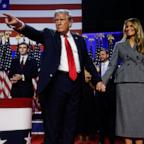Global climate conference off to a challenging start
How much will it cost to fight climate change globally, and who should pay for it? That's the primary issue facing delegates at the annual U.N. climate conference, COP29. Dubbed the "finance COP," the two-week event began on Monday in Baku, Azerbaijan.
While representatives from nations worldwide will discuss various climate issues, finance is a key theme this year, namely how much external financing will be available to developing countries for their climate adaptation efforts and to compensate them for the damage and loss caused by climate change. Although wealthier countries generate the majority of greenhouse gas emissions, poorer nations are disproportionately impacted by the consequences of global warming.
Conference attendees and climate leaders will be watching closely the climate investment commitments made by various nations and private finance, and much of the discussion will revolve around who should be paying and how much they should be contributing.

The current target for international public and private financing is around $100 billion, but the U.N. estimates that it will take as much as $2.4 trillion by 2030 to meet climate goals, with $1 trillion coming from international sources.
It's uncertain, however, how much each nation will contribute and where the money will go.
"For those poorest countries and particularly for adaptation, finance needs to be in grant and concessional form," said Melanie Robinson, the global climate, economics and finance program director at the World Resources Institute.
One issue sure to be controversial is whether developing countries that can afford to contribute to the global effort should be added to the contributor base. Critics of that recommendation say the biggest emitters should be the most significant contributors.
U.N. Climate Change Executive Secretary Simon Stiell set the table for the talks during his opening address, focusing on what's at stake.
"If at least two-thirds of the world's nations cannot afford to cut emissions quickly, then every nation pays a brutal price," said Stiell. "If nations can't build resilience into supply chains, the entire global economy will be brought to its knees. No country is immune."
Stiell added, "So, let's dispense with the idea that climate finance is charity. An ambitious new climate finance goal is entirely in the self-interest of every single nation, including the largest and wealthiest."
On the same day Stiell was delivering his remarks, preliminary data from the World Meteorological Organization showed that 2024 remains on track to be the warmest year on record and will likely become the first year that is more than 1.5 degrees Celsius warmer than the 1850 to 1900 pre-industrial average
COP29 takes place in the shadow of significant political challenges, including changes in worldwide political leanings and the recent presidential election in the U.S. It didn't help that delegates had to delay the convention activities on Monday because leaders couldn't agree on a conference agenda. Who would be leading financial planning meetings, as well as an unconventional move from a supervisory board to pass new standards without any consultation, were the primary sources of contestation.
Mukhtar Babayev, president of COP29 and Azerbaijan minister of ecology and natural resources, suspended sessions for further talks on the agenda.
"The hour is late, we have a lot of work ahead of us," Babayev said as the delayed session resumed.
-ABC News' Charlotte Slovin and ABC News Climate Unit's Matthew Glasser






